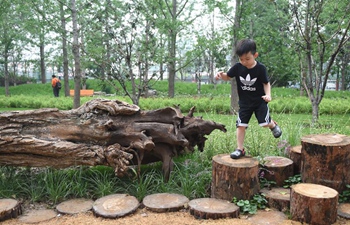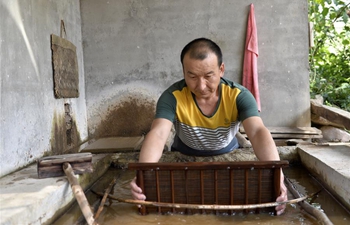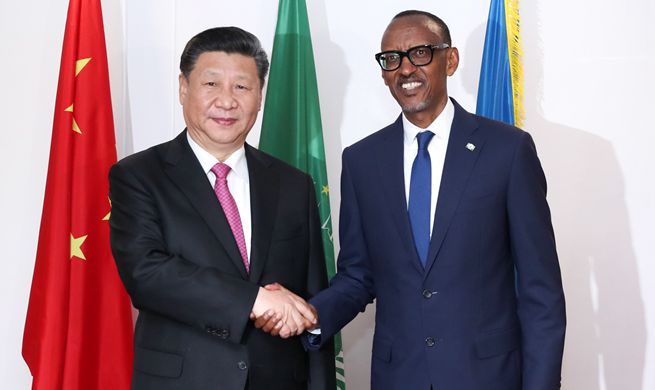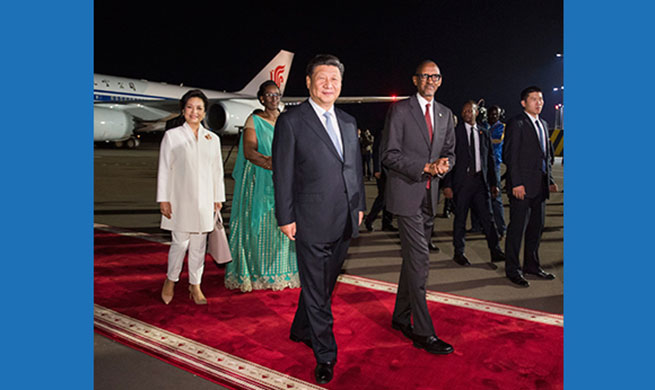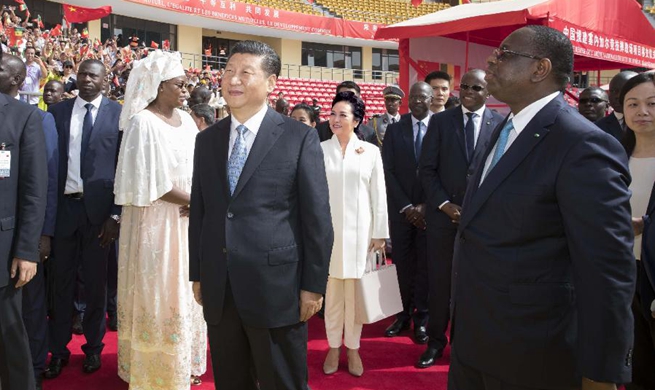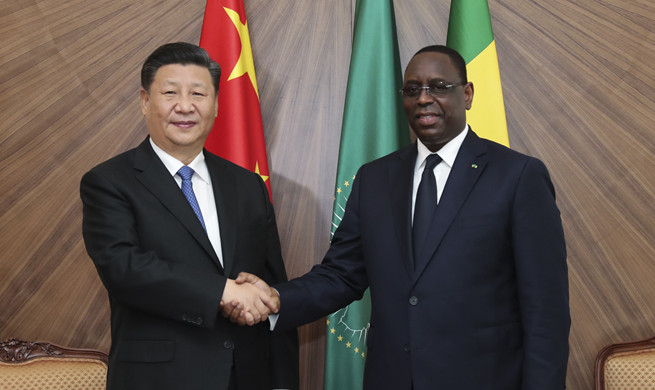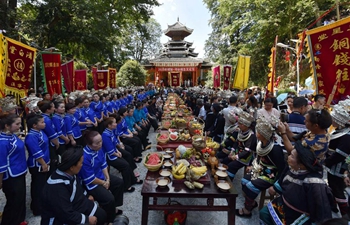UNITED NATIONS, July 23 (Xinhua) -- UN High Commissioner for Human Rights Zeid Ra'ad Al Hussein expressed "acute concerns" on Monday over the human rights situation of the Palestinians in light of the recent border violence between the Gaza Strip and Israel.
Briefing the Committee on the Exercise of the Inalienable Rights of the Palestinian People via video from Geneva, Zeid said the Palestinians in Gaza face "skyrocketing unemployment and poverty, crumbling infrastructure, record food-dependency and a bleak political horizon," which are "entirely man-made and entirely preventable."
Regarding the killings near the Isreal-Gaza border during the Great March of Return demonstrations, he said the Human Rights Council resolved in May to dispatch an independent, international Commission of Inquiry on the matter. "It is essential that the authorities cooperate with the future commission to advance accountability for these killings."
He added it would be "vital to address the root causes of the recent demonstrations," namely the "grossly inadequate living conditions" in Gaza.
In his statement, he mentioned the adoption by Israel of the Nation-State Basic Law, saying it "anchors inherent discrimination against non-Jewish communities, most notably the Arab citizens of Israel and residents of occupied East Jerusalem."
He went on to underscore that the planning and construction of Israeli settlements continues "unabated" across the occupied West Bank. "Since the beginning of 2018, settler attacks on Palestinians have spiked to the highest monthly average of the past three years."
As for demolitions and forced displacement of Palestinian families in the occupied West Bank and East Jerusalem, despite having slowed down after peaking in 2017, they continue to take place monthly, said Zeid, with 366 structures demolished in the West Bank alone, including 11 school structures, in the past year.
Other violations in breach of international law cited by the high commissioner include increasing restrictions on movement, daily intimidation by soldiers at checkpoints, settler violence and harassment, forced transfer, and the continued existence of the separation wall.
The human rights chief highlighted also the plight of hundreds of Palestinian children detained by Israel, including some without charge, under the so-called "administrative detention" system. An estimated 440 Palestinians are being held currently.
"These assaults on fundamental rights dismantle trust in institutions, strip away the social structures which enable peaceful resolution of disputes, and create a tinderbox in which any flash of conflict may ignite severe and unpredictable consequences," he concluded.
On Friday, four Palestinians were killed and some 210 Palestinians wounded during fierce fighting between Israel and Hamas, the most serious one in the Hamas-ruled Gaza Strip since the 2014 Israel-Gaza conflict that killed thousands.
The attack began after an Israeli soldier was killed during operational activity near the southern Gaza Strip on Friday. The soldier was the first one to be shot dead by Palestinian fighters since 2014, the Israel Defense Forces said.
Later Friday, Hamas announced it had reached a ceasefire agreement with Israel after efforts led by Egypt and the UN.
Since late March when the Great March of Return protests started, the death toll of Palestinians has exceeded 140. The protests, which peak every Friday, demand the return of Palestinian refugees and the lift of the blockade Israel has imposed on Gaza.





